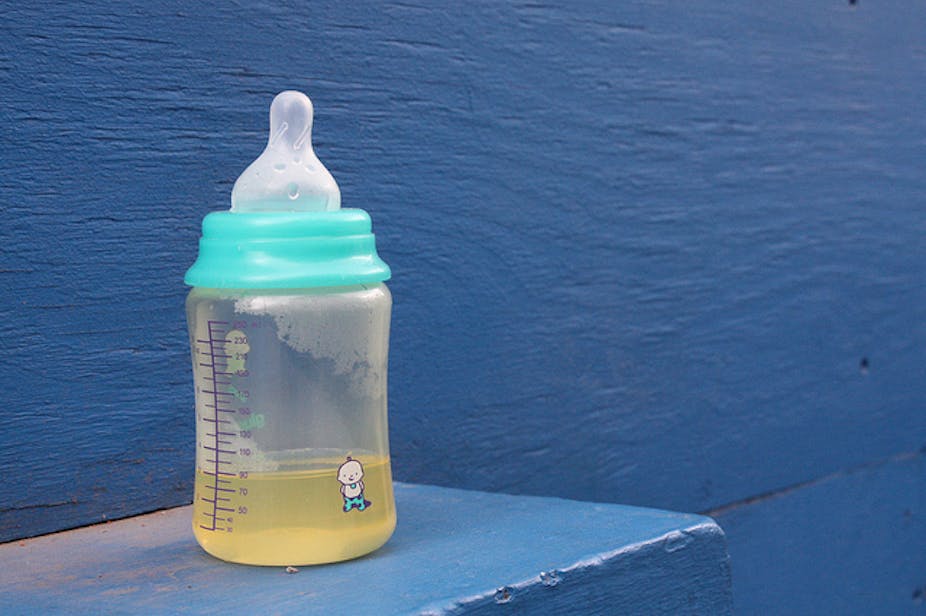Children who are bottle-fed until the age of two are 30% more likely to be obese at five-and-a-half years of age, a new study has found.
Of the 6750 children studied by researchers from Temple University and Ohio State University, 22% were still using a bottle or were put to bed with a bottle. By the time they were five-and-a-half years old, 23% of the prolonged bottle feeders were obese.
“Children who were still using a bottle at 24 months were approximately 30% more likely to be obese at 5.5 years, even after accounting for other factors such as the mother’s weight, the child’s birth weight, and feeding practices during infancy,” said Dr. Robert Whitaker from the Centre for Obesity Research and Education at Temple University.
Part of the problem is that bottle feeders may be consuming more overall than breast-fed infants.
“A 24-month-old girl of average weight and height who is put to bed with an 8-ounce bottle of whole milk would receive approximately 12% of her daily caloric needs from that bottle,” said co-author Rachel Gooze.
Weaning a baby at one year may prevent obesity, she said.
The study was published in the Journal of Pediatrics.
Professor Colin Binns from the School of Public Health at Curtin University told The Conversation that the research made reasonable conclusions but that it was hard to pinpoint what was causing the problem.
“It’s hard to know if it’s the prolonged bottle feeding or the lack of breast feeding that is causing the obesity. We know that babies breast fed for prolonged periods of time are less likely to develop obesity,” he said.
He said the infant feeding guidelines in Australia recommend against putting a child to bed with a bottle.
“When you do that, you get a continual drip of milk so you get increased calories and exposing the kids to continuous food predisposes them to dental decay. You end up with kids’ teeth falling out at the age of two or three,” he said.
Professor Binns said that the National Health and Medical Research Council was due to issue new infant feeding guidelines for Australia soon.
“It may still be possible to include this new research in the guidelines, or it may be discussed in the pubic consultation stage,” he said.

